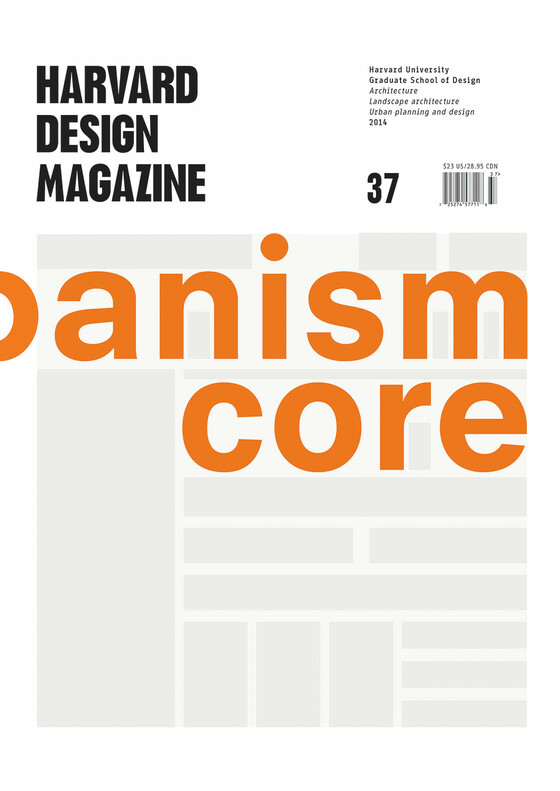A Cosmopolitan Urban Meadow for the Northeast
37: Urbanism’s Core?

The purpose of Harvard Design Magazine, no. 37 is to foreground these urgent issues of epistemology and praxis; to explore new directions for research and theoretical formation emerging from these conditions; and to highlight strategies, processes, and practices of intervention that are being proposed in response to emerging environments. The issue is organized around these overlapping and interrelated lines of inquiry. It includes essays that address contemporary conditions of the urban and propose frameworks for understanding processes of urbanization across a broad geography; that engage issues of scale, publics, governance, poverty, social inequality, violence, extreme differentiation, abandonment, risk and resilience, informality, temporality, hybridity, media,and network cultures. Other contributions propose strategies for intervening at multiple scales; they show the diversity of critical approaches and practices emerging in response to contemporary states of urbanization in different parts of the world.
Together, the contributions to “Urbanism’s Core” make an argument for bringing theory into closer dialogue with practice, design into collaboration with planning. Most of all, they argue for the importance of conceptual frameworks for understanding conditions that are dynamic, synchronous, and multiply contingent on factors at divergent scales; that foreground questions of social justice, poverty, citizenship, and sustainability; that deal both with “big numbers” and the specificity of complex differentials—concepts, in other words, that enable us to intervene with legitimacy, intelligibility, and efficacy in the multiple conditions of the contemporary urban.
—Eve Blau (excerpted from the introduction)
Michael Luegering, Peter del Tredici
Interboro Partners
Edgar Pieterse
Thordis Arrhenius
Mark Shepard
Momoyo Kaijima
Wouter Vanstiphout
Chris Reed, Toni L. Griffin
Hashim Sarkis
Peter Rose, Rahul Mehrotra
Eve Blau
Jeanne van Heeswijk
Iwan Baan
Sobia Ahmad Kaker, Stephen Graham
F451, Lluis Ortega
Ecosistema Urbano
Jianfei Zhu
Philipp Oswalt
atelier d’architecture autogérée (aaa)
Federico Parolotto
Joan Busquets
Felipe Correa
Joyce Klein Rosenthal
Kees Christiaanse
Miguel Robles-Duran
Alex Krieger
Camilo José Vergara
Erik Swyngedouw
Diane E. Davis
Neil Brenner
Jerold S. Kayden